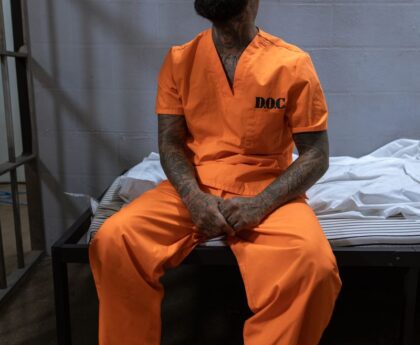California Governor Declines to Block Parole for Charles Manson Follower Leslie Van Houten
Introduction
California Governor Gavin Newsom announced on Friday that he will not seek to block the parole of Leslie Van Houten, a member of the infamous “Manson family” cult who participated in the gruesome murders of Leno and Rosemary LaBianca in 1969. Van Houten, now in her 70s, has spent the last 53 years in prison for her role in the killings. This decision by the governor means that Van Houten is likely to be released in the coming weeks, pending the finalization of her release plans. This development has evoked mixed reactions from the public, with the victims’ families expressing their ongoing pain and loss, while Van Houten’s attorney highlights her potential for rehabilitation and the need for her to acquire basic life skills to reintegrate into society.
The Impact of the Manson Cult
The Manson family’s brutal crimes shook the nation and left a lasting impact on the victims’ families and society as a whole. The murder of actress Sharon Tate and four others at the Benedict Canyon and the subsequent killings of the LaBianca couple sent shockwaves throughout the country in 1969. More than 50 years later, the wounds still run deep for the families of the victims, who continue to grapple with the void left by their lost loved ones. The decision to release Van Houten brings to the surface the enduring pain these families have endured.
The Governor’s Decision
Governor Newsom’s office stated that it is unlikely the state’s Supreme Court would consider an appeal to reverse the lower court’s ruling, which granted Van Houten parole. This decision aligns with the recommendation made by the Board of Prison Terms commissioners, who reinstated Van Houten’s parole eligibility after initial opposition from Newsom. The governor’s office acknowledged the impact of the Manson cult’s crimes and expressed empathy towards the victims’ families.
A Matter of Rehabilitation and Release
Van Houten’s attorney, Nancy Tetreault, has emphasized her client’s progress in rehabilitation and her ability to reintegrate into society. Van Houten has been recommended for parole five times since 2016, with the parole board highlighting her extraordinary efforts in rehabilitation, insight, and remorse in their evaluations. Tetreault also underscores the challenges Van Houten will face upon her release, having spent the majority of her life in prison. She will undergo reintegration at a halfway house, where she will learn basic life skills, such as operating an ATM machine or using a cell phone. Tetreault’s arguments shed light on the complexities of post-incarceration reintegration, particularly for individuals who have spent the majority of their lives behind bars.
Philosophical Considerations
This case presents an opportunity for reflection on the nature of justice and the concept of rehabilitation. While the gravity of the crimes committed by Van Houten and the Manson cult is indisputable, questions arise as to whether individuals should have the chance for redemption and rehabilitation, even after committing heinous acts. The parole board’s repeated recommendations for Van Houten’s release indicate their belief in her potential for reform. Moreover, the governor’s decision not to intervene suggests a certain trust in the parole board’s assessment and a recognition of the possibility for personal growth and rehabilitation, even within the context of such horrifying crimes.
The Impact on the Victims’ Families
The announcement of Van Houten’s impending release has reopened deep wounds for the victims’ families. Cory LaBianca, Leno LaBianca’s daughter, expressed her heartbreak at the loss of her father and stepmother and the void it has left in her family’s life. She laments the missed opportunities for her children and grandchildren to know their grandparents. These sentiments highlight the long-lasting anguish and sense of injustice that the families have endured over the years. It is crucial to recognize their ongoing pain and provide support for their healing process.
Editorial: Balancing Justice and Rehabilitation
The Complexity of Criminal Justice
The case of Leslie Van Houten raises complex questions about the criminal justice system and the purpose of incarceration. While punishment serves as a means of retribution and deterrence, it must also be tempered by the opportunity for rehabilitation. The parole board’s repeated recommendations for Van Houten’s release reflect a belief in her potential to reintegrate into society successfully. Acknowledging individuals’ capacity for growth and transformation after committing heinous acts is an essential step in our collective pursuit of justice.
A Focus on Rehabilitation and Reintegration
Rehabilitation should not solely be regarded as a soft approach or a disregard for the gravity of the crimes committed. Rather, it should be seen as an acknowledgment of the potential for personal evolution, even in the face of extreme circumstances. Van Houten’s attorney highlights the need for her to learn basic life skills before fully reintegrating into society. This approach recognizes the challenges faced by individuals who have spent significant portions of their lives behind bars and seeks to equip them with the tools needed for successful reentry into the community.
Supporting the Victims’ Families
While the focus of this case has predominantly been on Van Houten’s potential for rehabilitation, it is crucial not to overlook the ongoing pain and suffering of the victims’ families. The impact of these crimes reverberates through generations, depriving individuals of the chance to know their loved ones and leaving a profound void in their lives. Supporting the victims’ families in their healing journey should be a priority, providing them with the resources and support needed to navigate these ongoing challenges.
Conclusion
The decision by California Governor Gavin Newsom not to block the parole of Leslie Van Houten, a member of the Manson family, has sparked discussions about the nature of justice and rehabilitation. In this case, the parole board’s repeated recommendations for Van Houten’s release point towards the potential for personal growth and redemption, even in the face of horrifying crimes. However, it is crucial to remember the lasting impact on the victims’ families and support them in their ongoing healing process. Balancing justice, rehabilitation, and support for victims is a complex task, but one that is necessary for the pursuit of a fair and compassionate criminal justice system.

<< photo by Dave >>
The image is for illustrative purposes only and does not depict the actual situation.
You might want to read !
- From the Stanley Cup to the Diamond: Exploring Wednesday’s MLB Best Bets in Canadian English Language
- Exploring Jack Grealish’s Impact at Man City’s Treble Celebrations: A Canadian English Editorial.
(Note: The article title may vary depending on the specific focus and analysis given by the author.)
- George Soros Hands Over Control of His Empire to Son Alexander Soros in Canadian English




